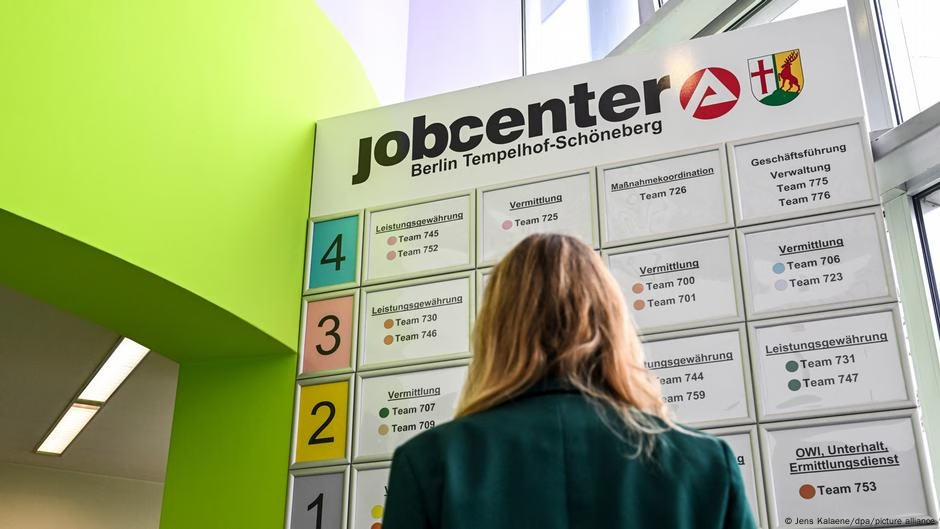Bürgergeld has been a subject of controversy since its introduction in 2022 and became a frequent Point of debate among those opposed to its inception.
A recent study by the Bertelsmann Foundation indicates that administrative costs, rather than the recipients of the benefits themselves, are the primary contributors to the escalating expenditure on welfare. Additionally, it suggests that insufficient investment is being made in actively integrating the unemployed into the workforce.
Up to 70% of the budget may be spent on admin
The German federal government delegates the responsibility of overseeing who qualifies for Bürgergeld to regional and municipal agencies known as Jobcenters, which are also tasked with career counseling and placing the unemployed into employment or training programs. In 2024, these agencies received 10.7 billion euros. However, as the study points out, “in the past ten years, administrative costs have risen by 39%, reaching 6.5 billion euros,”
“Some Jobcenters allocate as much as 70% of their budget” towards bureaucracy, it further reveals.
According to Tobias Ortmann, who worked on the project for Bertelsmann, significant budget reforms and an overhaul of the Jobcenters’ uniform approach are necessary to combat inefficiency.
Ortmann stated that “the heterogeneity of benefit recipients must be taken into account to ensure that funds are not allocated on a flat-rate basis alone,” highlighting that issues such as disability, childcare, and lack of education create complex interwoven needs that are not effectively addressed. He noted that until there is a legal framework recognizing and addressing these issues, individual Jobcenters are limited in their ability to address them.
Workforce reintegration continues to shrink
Among the recipients of Bürgergeld are 1.5 million children. Out of the remaining 3.9 million, 2.2 million are unable to work due to training, caring for relatives, or for small children. This leaves 1.7 million recipients who are capable of working. However, according to the Institute for Employment Research (IAB), only 23% of job openings in Germany are suitable for candidates without a degree.
Since the introduction of the current welfare system, the number of individuals successfully integrated into the labor market has decreased by approximately 6%.
Part-time work not paying off
Initially intended to replace the much-maligned predecessor known as Hartz IV, Bürgergeld has been sharply criticized by likely future Chancellor Friedrich Merz and his Christian Democrats (CDU). This further complicates coalition talks with the Social Democrats (SPD).
“In one of every two companies, workers are saying: ‘I’ll just go get Bürgergeld’,” Merz said in advance of Germany’s February federal election without providing data to support this claim.
The trope that people are better off on welfare is a common one, but the reality is more complex.
A single adult receiving Bürgergeld currently obtains €563 ($683) a month. In addition to this, the state covers health and long-term care insurance, rent, and heating. With the increasing cost of living, it means that a part-time job, which can result in reduced benefit payments, might not be worthwhile.
However, study after study by the IAB has shown that most unemployed people would rather earn a living wage than collect benefits, and that stagnating wages and skyrocketing costs are the real issues.
Merz accused of pandering to far-right voters
Merz has been accused of using anti-welfare rhetoric to court voters of the far-right Alternative for Germany (AfD). Poised to become the largest opposition party in parliament, the AfD has been increasingly vocal about non-citizens receiving Bürgergeld.
The Federal Labor Ministry stated that in 2024, some 2.64 million people receiving Bürgergeld are not German citizens. However, to be eligible for these benefits, one must be a legal resident in the country. A significant portion of this group consists of Ukrainians and other refugees who are either children or lack proficiency in the language necessary to secure employment.
The CDU has promised drastic cuts to social welfare and stricter penalties for individuals considered fit to work who cannot prove their active job seeking. In fact, Merz has pledged to completely eliminate benefits for these individuals, contrary to a 2019 ruling by Germany’s highest court that deems cuts exceeding 30% as unconstitutional.
Bureaucratic costs outpacing benefit payments
While the study’s authors agree that “moderate” penalties against individuals violating the conditions of their welfare benefits should be enforced more rigorously, the main issue remains the cost of administering Bürgergeld, not the recipients themselves.
Complaining about bureaucracy is a common pastime in Germany, with the country’s seemingly endless layers of paperwork and administrative offices even becoming an international joke. According to a 2024 report by the Munich-based Institute for Economic Research (Ifo), bureaucracy equates to a staggering €146 billion loss to the economy.
In regards to Bürgergeld and Jobcenters, Bertelsmann’s experts advocate for “a complete reform” in the allocation of funds. They emphasize the need for a “targeted, individual plan” for individuals to reintegrate into the workforce and argue that more funding should be allocated for this type of support. To this end, they propose that elected officials play a more direct role in determining how budgets are spent, rather than merely allocating funds and leaving the rest to develop on its own.
The bathroom system as a whole “has the wrong focus,” said Roman Wink, the study’s lead author, by viewing the unemployed as a single entity. Wink also advocated for increased transparency in how Jobcenters allocate their funds, suggesting that they should need to prove that they are managing their caseloads in an “impact-oriented” manner.
Edited by Rina Goldenberg
While you’re here: Every Tuesday, DW editors round up what is happening in German politics and society. You can sign up here for the weekly email newsletter Berlin Briefing.







